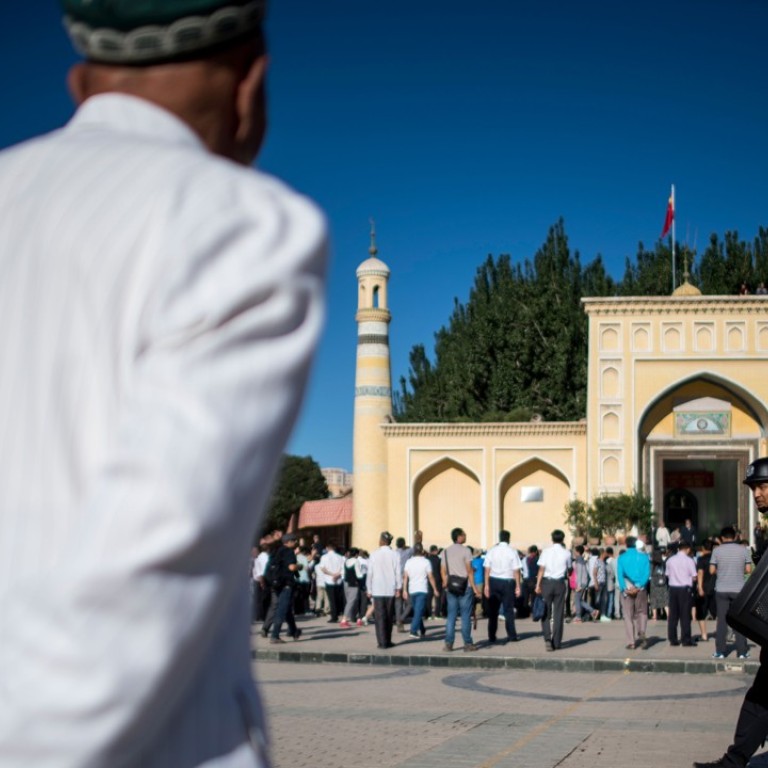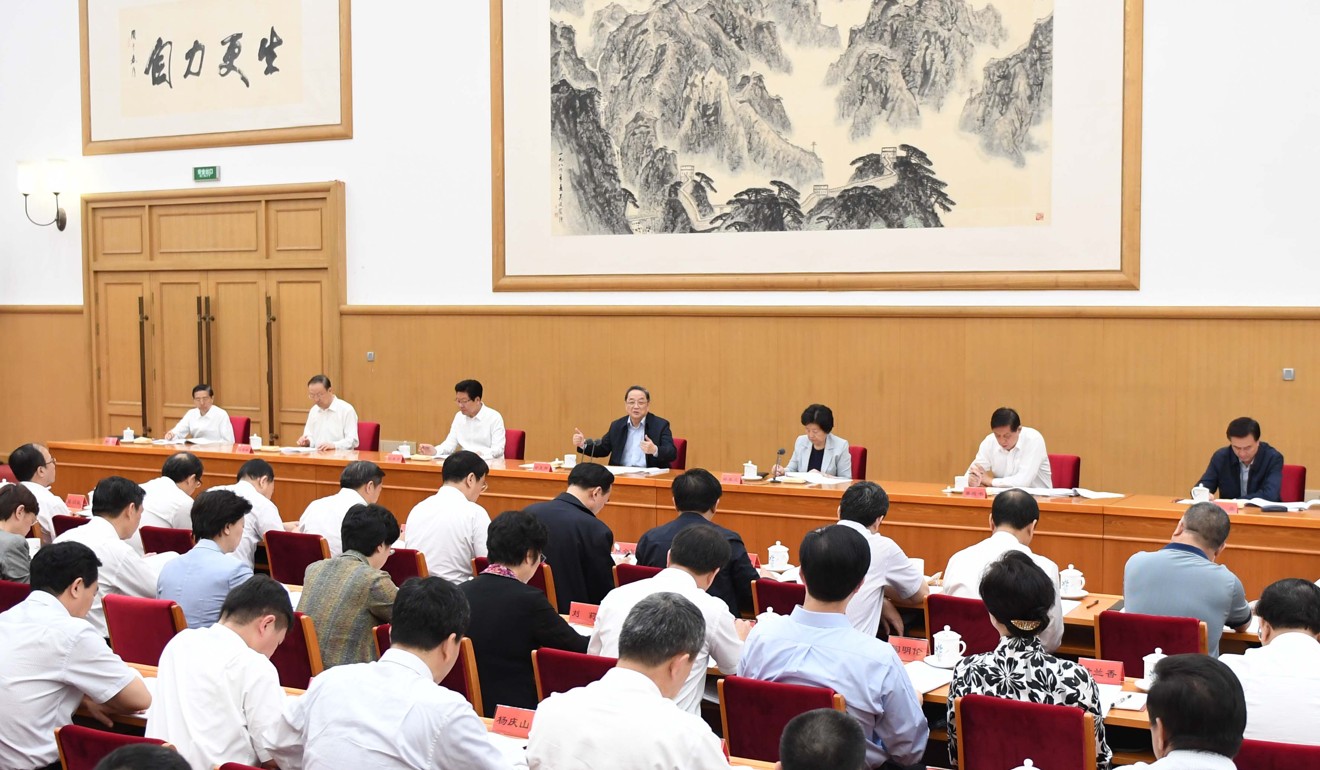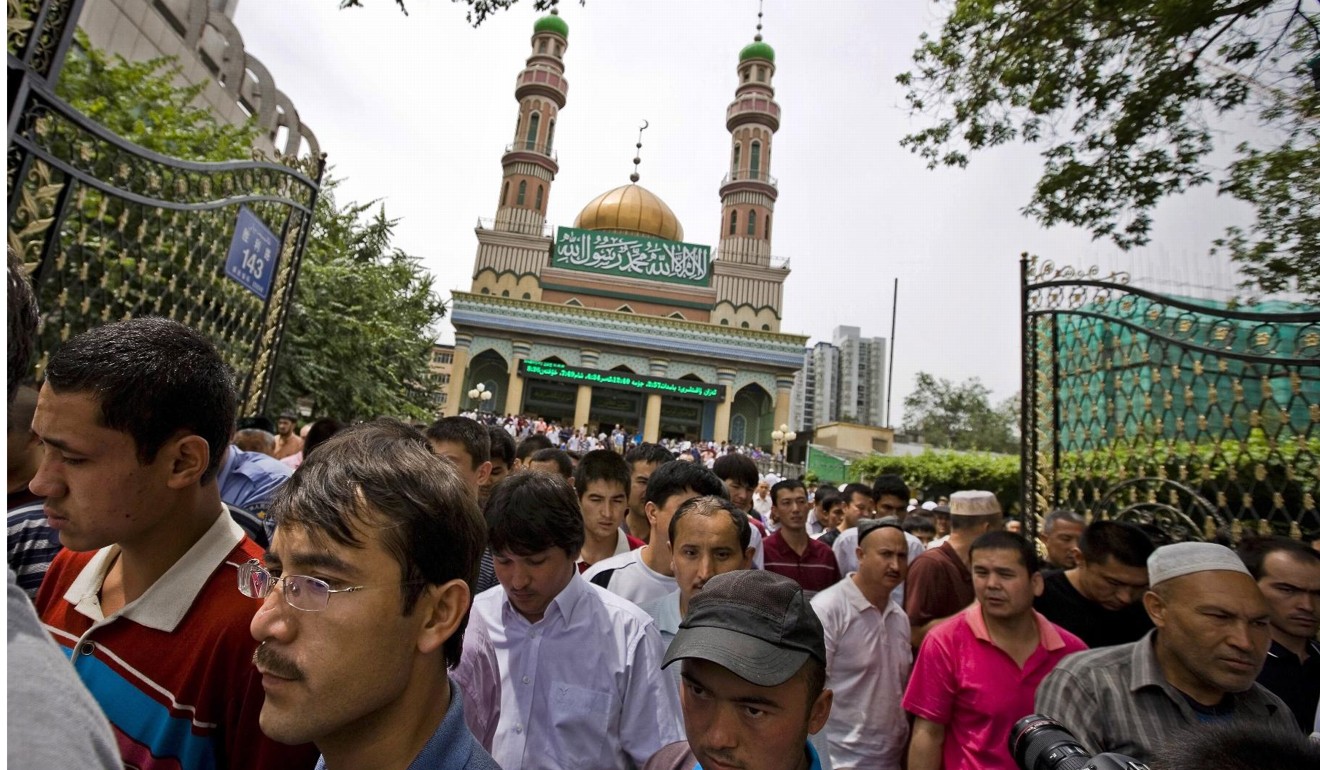
China’s new campaign to instil official historical narrative in Xinjiang
Officials at high-level meeting told to address ‘several historical issues’ regarding the restive region through propaganda and training
China’s far western Xinjiang is set to roll out an ideological campaign to instil the official Communist Party narrative of the region’s history in its officials, religious leaders and the masses.
Yu Zhengsheng, the party’s fourth-ranking official who is in charge of religion and ethnic minorities, presided at a high-level meeting in Beijing this week to address “several historical issues” regarding the restive region, official news agency Xinhua reported.
The two-day meeting, which ended on Wednesday, made clear the party’s stance on these issues to address the “long-standing and deep-seated” ideological problems in Xinjiang, according to Xinhua.
“[We should] eliminate the influence of incorrect ideas about Xinjiang’s history, culture, ethnicities, religions and other aspects,” the report quoted Yu as saying. He went on to stress the party’s efforts to win public trust and fight separatism.
Yu also urged local governments in Xinjiang to step up propaganda activities to promote the key points of the meeting to the public, and to improve training of party cadres, intellectuals and religious leaders.

“In the lead-up to the 19th National Congress next month, [the meeting] aims at establishing some clear lines for the party’s approach to Xinjiang,” said Michael Clarke, an expert on Xinjiang at the National Security College, Australian National University.
Xinjiang, home to some 10 million mostly Muslim Uygurs, has been subject to beefed up security measures and a crackdown on religious activities after ethnic violence that has killed hundreds of people in recent years. But the government seems to have opened up a new front in the fight against what it calls “the rise in extremism and separatism” – an ideological campaign around history.
The Xinhua report did not specify exactly what “historical issues” were discussed at the symposium, but it did list what “stances” had been clarified: that Xinjiang has been an inalienable part of Chinese territory since the ancient dynasties; that various ethnic groups in the region are members of the Chinese nation; that the culture of Xinjiang’s ethnic groups is deeply rooted in, and an indivisible part of, Chinese civilisation; and that Xinjiang is a region where a number of religions exist side by side.
The rhetoric is consistent with the party’s official line that was first summarised in a white paper released in 2003 on the history and development of Xinjiang.
“Most Uygurs have their own views on a number of the issues that will be quite different from the official line,” Clarke said.
The white paper states that “since the Han dynasty established the Western Regions Frontier Command in Xinjiang in 60BC, the Chinese central governments of all historical periods exercised military and administrative jurisdiction over Xinjiang”.

Barry Sautman, an expert on China’s ethnic politics at the Hong Kong University of Science and Technology, said such claims were made outside the framework of modern conceptions of history.
“What was a state then is not what is a state now – the criteria has been shifted. All those claims that our ownership goes back thousands of years won’t be accepted by serious historians,” he said.
The official rhetoric also emphasises the multi-ethnic and multi-religious coexistence of the region’s history, and its historical role as a melting pot and Eurasian meeting point.
Such narratives put forward by the party are “a direct rebuttal to those Uygurs who say Xinjiang has always been the heartland of the Uygurs ... and has always been Islamic”, Clarke said.
Although the government’s fundamental position is expected to remain the same, the Xinhua report did not reveal whether any revision of the white paper’s narrative had been made at the meeting.
“We tend to think about history as being very static, but actually history is only what historians make of it. There are always new investigations and new researches being carried out by historians. There are a lot of historians working on Xinjiang history within China. In a period of more than a decade, of course they can come up with a lot of new stuff,” Sautman said.

